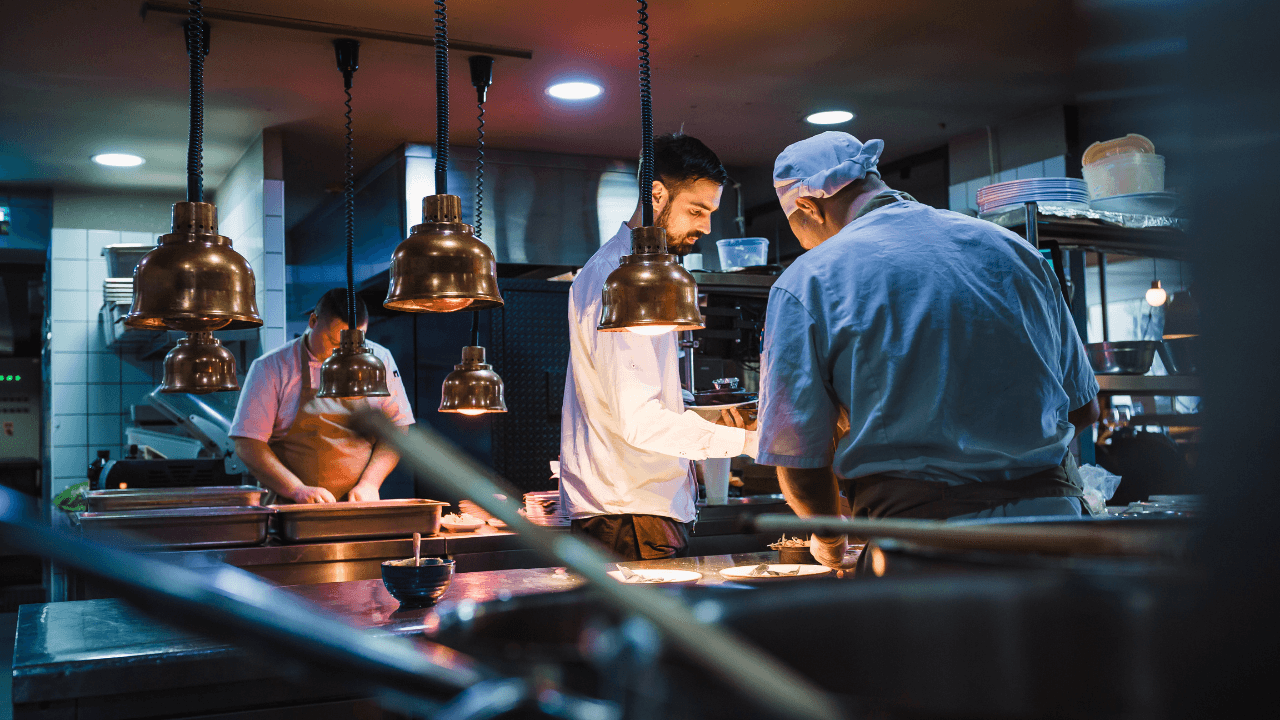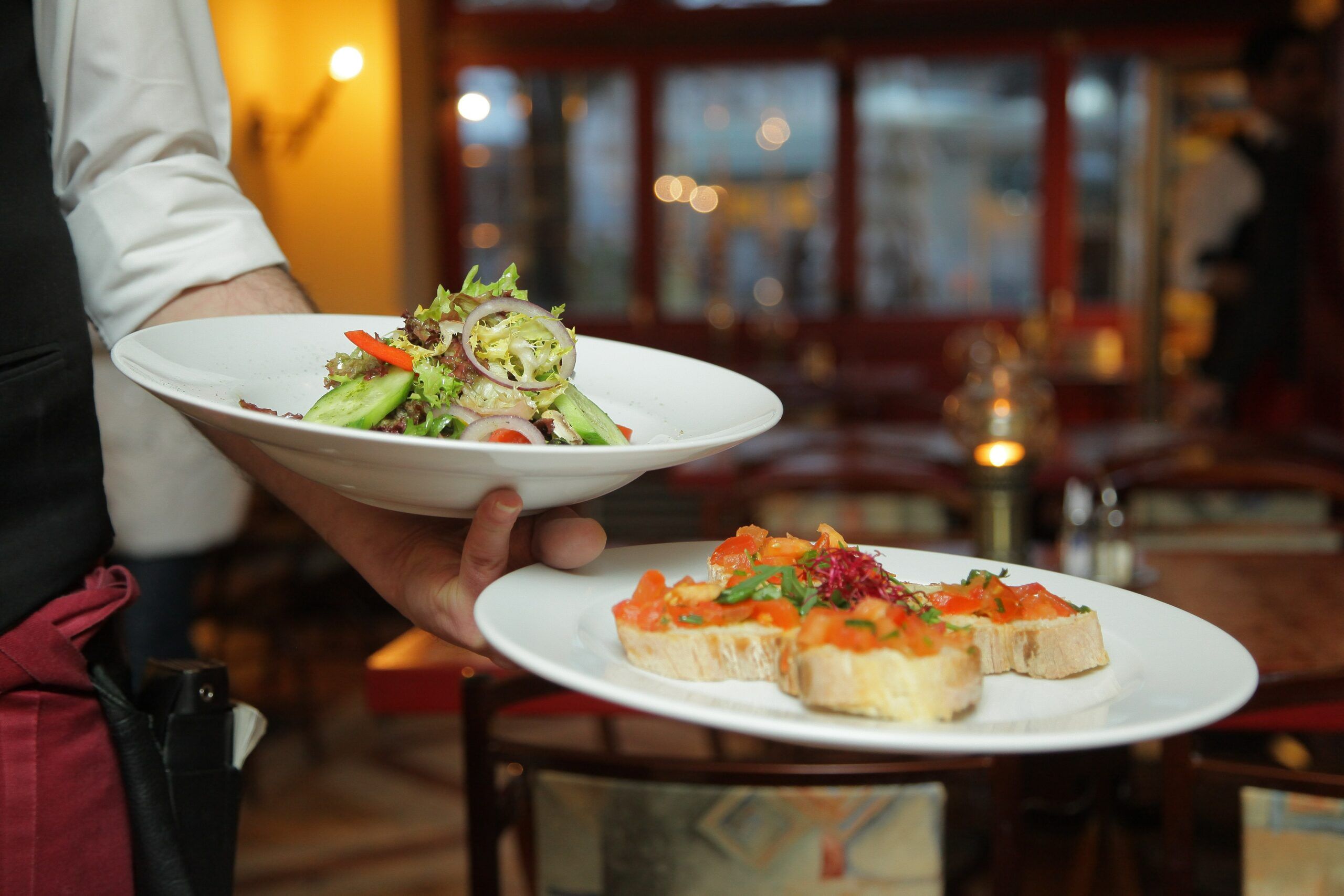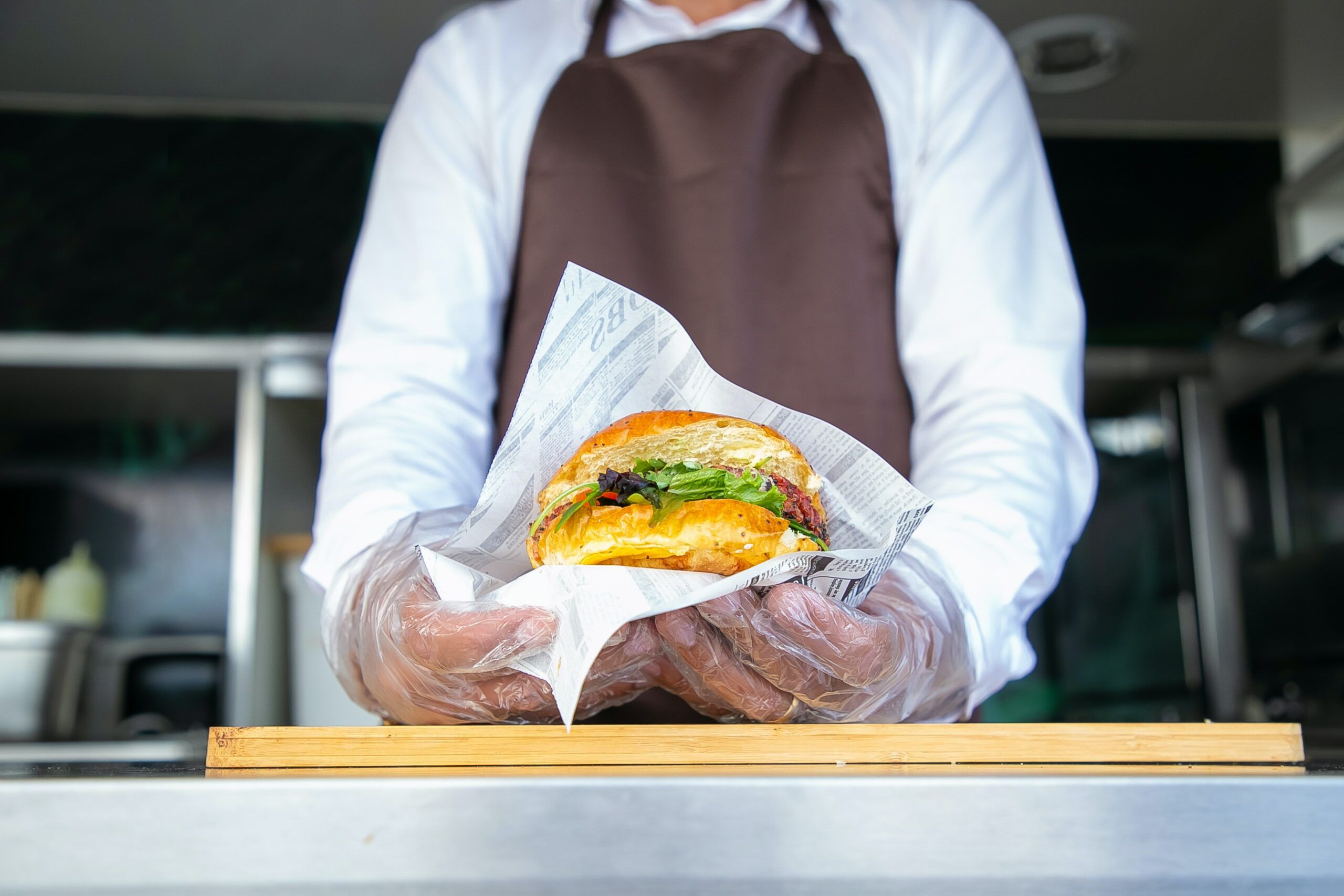- Top Reasons Owners Want to Scale Their Restaurants
- Strategies to Try to Scale Your Restaurant Business Today
Sales in the US restaurant food industry is forecasted to reach $997 billion in 2023. So if you’re looking to reach new heights with your business, now is the time to grasp the opportunities in front of you.
A passionate independent restaurant owner like yourself shouldn’t be swayed by negative propaganda and fake news about dining at restaurants.
The truth lies in the data, and the data reveals that people are still looking forward to dining out more than ever before!
In fact, according to a recent US Census Bureau report, more Americans prefer to dine at restaurants compared to buying grocers. This means there is an ever-growing opportunity for independent restaurant owners to expand their business into new and exciting areas of the market.
Now, as you consider taking your business to the next level, it’s important that you make strategic decisions about how best to position yourself in that market.
In this guide, we’ll unveil the essential strategic considerations that will turn your eatery into a mouthwatering empire.
Top Reasons Owners Want to Scale Their Restaurants
Scaling a restaurant is a significant milestone for any ambitious owner, driven by various compelling reasons that go beyond the confines of their current establishment.
Here are the top reasons why owners want to scale their restaurants:
Increased Profits
Scaling a restaurant allows owners to tap into a larger customer base, leading to increased sales and profits. With more locations or expanded operations, they can achieve higher revenue and economies of scale.
Brand Recognition
McDonalds didn’t create anything new when they started their business. People were eating burgers before the food giant even came to the scene.
However, by establishing their quick-service model, they ceased the importance of having franchises as a way to boost brand recognition. When their logo started appearing in more and more places, people started to associate McDonalds as a reliable and dependable source of burgers and fries.
By scaling your restaurant, you can not only open more locations but also expand into new markets and segments. This is a great way to increase your brand recognition and cement your place in the market.
Diversification
By expanding into new locations or offering additional services, owners can diversify their revenue streams. This helps to mitigate risks associated with a single location and makes the business more resilient.
For instance, if your Dallas-based restaurant is dominated by Tex Mex cuisine, you can open a new location in Chicago and introduce Italian dishes.
By doing this, you are diversifying both your geographical reach as well as the range of services you offer, helping to reduce your business risks and increase profits.
Talent Attraction and Retention
Since 2020, there’s been a 4% decline in US undergraduate students. Many might be finding work after high school graduation a more reasonable stepping stone to move forward in their careers than investing loads of money in studying something they’re unsure about.
Restaurants can serve as potential solutions for lively students as they walk on the journey toward adulthood.
Who knows? Some might be inspired by your restaurant’s positive environment and delectable food so much that one day they aspire to open their own place. Or maybe become a well-known chef in one of your franchises!
Hence, successful scaling can create exciting opportunities for employees and becomes an attractive destination for talent-seeking growth and career advancement.
Catering to Customer Demand
As the restaurant gains popularity, customer demand often outgrows the capacity of a single location. Scaling allows owners to meet this demand and provide a consistent experience to a broader audience.
And with the advent of social media, word about your restaurant can spread like wildfire if you have a loyal fan base. This means that more customers are bound to try your restaurant, which is why owners must ensure they can deliver a great experience each and every time.
Competitive Advantage
In a competitive industry, scaling can provide a significant advantage. By offering a broader reach and variety of services, the restaurant can outshine competitors and stay ahead in the market.
Partnership and Franchise Opportunities
Scaling can open doors to potential partnership and franchise opportunities, further expanding the restaurant’s reach and revenue potential.
Personal Achievement and Legacy Building
For many restaurant owners, scaling is a testament to their vision, hard work, and dedication. It’s a chance to leave a lasting legacy in the culinary world and fulfill a lifelong dream.
Strategies to Try to Scale Your Restaurant Business Today
Scaling a restaurant requires a well-thought-out strategy that encompasses various aspects of the business. Here are some actionable strategies to try today to scale your restaurant:
Streamlined Operations
Optimize and streamline your restaurant’s operations to ensure efficiency and consistency. Implement standardized processes, use technology to automate tasks, and focus on reducing wastage to improve overall profitability.
Tip: Adopt delivery apps and online ordering platforms to make it easier for customers to order food. And other technology tools like inventory management software to minimize food waste as much as possible.
Your Inbox, Your Rules!
Tailor your newsletter with the topics you're most interested in.
Optimize Your Online Ordering Website
Make sure your website is optimized for mobile customers and features the latest technology. This will make it easier for customers to order food online, allowing you to cater to a larger audience.
Tip: Use analytics tools to track key performance indicators, such as conversion rates, abandoned orders, and average order size.
Market Research
Conduct thorough market research to identify potential new locations or target markets. Understand the demographics, preferences, and competition in those areas to tailor your offerings accordingly.
Many restaurants fail to realize that people are diverse and palates are not the same, not even from one country to another but also from one State to the next.
Build a Strong Brand
Invest in building a strong and recognizable brand identity. Develop a compelling brand story, design a memorable logo and signage, and maintain consistent branding across all locations.
Quality Menu and Ingredients
Focus on maintaining the quality of your restaurant menu offerings. Use fresh and locally sourced ingredients, and regularly update the menu to keep it exciting and appealing to customers.
Remember to put extra focus on food quality since negative dining experiences can last a lifetime. Moreover, coming up with innovative menu items is also a great way to stand out from the competition.
Invest in Marketing
Increase your marketing efforts to reach a wider audience. Use social media, email marketing, and targeted advertising to promote your restaurant business and attract new customers.
Social media marketing in the restaurant industry can be an effective way to reach new customers and boost sales. Platforms like Instagram and Facebook are ideal for showcasing your restaurant’s food, promotions, and experiences.
Train and Empower Staff
Invest in training your staff to provide excellent customer service. Empower them to handle challenges and make decisions that align with your restaurant’s vision and values.
Tip: Organize regular feedback sessions with your staff and customers to get valuable insights on how to improve customer experience. Also, invite professional chefs and trainers to conduct training sessions for your staff.
Customer Feedback and Reviews
Pay close attention to customer feedback and reviews. Use this valuable input to identify areas for improvement and make necessary changes to enhance the overall dining experience.
Collaborate and Partner
Explore partnership opportunities with other businesses or influencers in the food industry. Collaborate on events, promotions, or co-branded initiatives to expand your restaurant’s reach and visibility.
Franchise or Licensing
Consider franchising or licensing your restaurant concept to expand rapidly without bearing the full financial burden of new locations. This approach allows you to leverage the expertise and resources of franchisees.
Innovate with New Concepts
Experiment with new restaurant concepts or dining formats. Launch pop-up events, food trucks, or virtual kitchens to tap into different markets and attract diverse customer segments.
Financial Planning and Funding
While having dreams to grow bigger can look great on paper, a solid financial plan is the foundation of any successful scaling effort.
Ensure you have a solid financial plan in place to support your scaling efforts. Explore different funding options, such as loans, investors, or crowdfunding, to secure the necessary capital.
Start Scaling Your Restaurant with the Right Strategies
If you are looking to pave the way toward having a successful restaurant business, it’s important that you make strategic decisions about how best to position yourself in the market.
By following these strategies and leveraging potential opportunities for growth, you can achieve success and turn your eatery into a mouthwatering empire.
Don’t forget to use the power of technology to your advantage. With new tools and technologies like online ordering apps, you can make the process easier and more efficient while providing a great customer experience.
Good luck!



